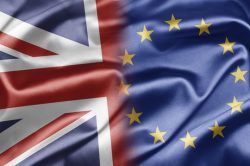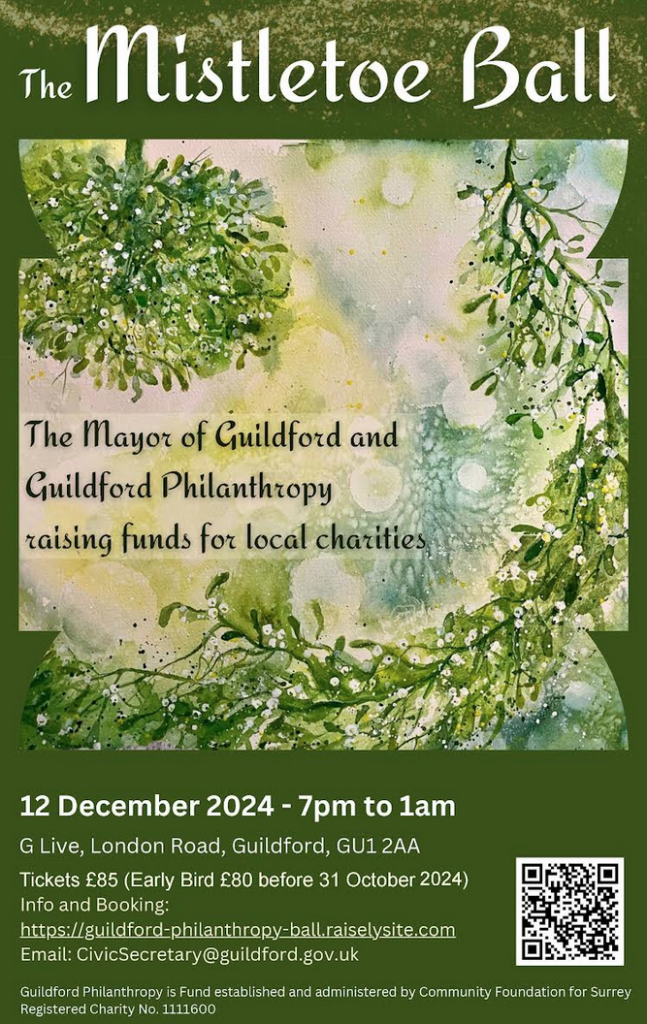 Abraham Lincoln
If given the truth, the people can be depended upon to meet any national crisis...
Abraham Lincoln
If given the truth, the people can be depended upon to meet any national crisis...
 Guildford news...
for Guildford people, brought to you by Guildford reporters - Guildford's own news service
Guildford news...
for Guildford people, brought to you by Guildford reporters - Guildford's own news service
Opinion: The Risks of Continued EU Membership
Published on: 8 Jun, 2016
Updated on: 23 Jun, 2016
By Christian Holliday
Conservative ward councillor for Burpham
This article is the third of a series of five setting out Christian’s personal views on the EU referendum debate. They are written in response to Nils Christiansen’s articles which commenced with: Why I Will Be Voting ‘Remain’ in the EU Referendum.
Peace in Europe
It is easy to forget now that for 50 years after the Second World War the west was embroiled in a cold war against the Soviet Union, a common enemy for all of us.
NATO gave us mutual defence with strong American involvement and underpinned our common security since 1949, long before the Maastricht Treaty of 1992 brought the EU into being.
 Whilst we are on the subject of the Soviet Union, it is interesting to note the comments of the former President of the Soviet Union, Michael Gorbachov who said: “The most puzzling development in politics during the last decade is the apparent determination of Western European leaders to re-create the Soviet Union in Western Europe.”
Whilst we are on the subject of the Soviet Union, it is interesting to note the comments of the former President of the Soviet Union, Michael Gorbachov who said: “The most puzzling development in politics during the last decade is the apparent determination of Western European leaders to re-create the Soviet Union in Western Europe.”
We see the rise of the far right in southern Europe, directly as a result of the Euro and the failed economic policies that accompany its drive to keep it afloat.
 Peace in Northern Ireland was brought about by many factors, not least of all the change in attitudes in the United States towards terrorism. The EU did little in Yugoslavia. Once again it was down to international efforts, and although slow off the mark, intervention from the USA.
Peace in Northern Ireland was brought about by many factors, not least of all the change in attitudes in the United States towards terrorism. The EU did little in Yugoslavia. Once again it was down to international efforts, and although slow off the mark, intervention from the USA.
I acknowledge that conflict between France and Germany, who went to war with each other three times between 1870 and 1945, would today be very difficult to imagine, but the price of this is the creation of a new country called Europe – one that does not respect the principles of democracy – rather than mutual respect for nations.
Engine for Stagnation
Britain’s post war decline was not halted until the reforms of the 1980’s. Whilst Mrs Thatcher wholly supported Britain’s membership of what was then the Single Market, she, like many other people who voted “Yes” in 1975 subsequently became very concerned with the level of interference in this country’s affairs from the EU.
In her famous Bruges speech in 1992 she said: “We have not successfully rolled back the frontiers of the state in Britain, only to see them re-imposed at a European level with a European super-state exercising a new dominance from Brussels.”
We do well, not because of the EU, but despite the EU. Most of our trade is outside the EU and our proportion of trade with that continent continues to decline. The main problem with trade blocs, aside from the political element in the EU’s case, is that they stifle innovation. Public procurement tenders are carefully worded to favour domestic firms in many EU countries that result in British firms losing out when bidding.
If you walk into any shop on Guildford High Street you will come across many goods from China, all which arrived here without a trade deal. If we could return to our free trading routes with all our advantages (English language, rule of law, global links, best timezone to trade, expertise, and lack of corruption), we would not only do well despite the EU, we would thrive like never before, free from stacked procurement rules.
A British passport gets you visa free entry to more countries than any other in the world. There is no reason to suggest this would change – unless EU countries do wish to cut off their noses to spite their faces, but I rather suspect Spain is very grateful for the massive cash injection into their economy from British pensioners. Why would they want this to end?
Threat to Security
Europe’s porous borders have been a regular feature on the news for a number of years now. Whilst we have passport controls, we have limited powers to turn EU citizens away. On the continent it is even worse: we saw how terrorists were able to cross from Syria via Greece and carry our horrific attacks deep into the European Mainland.
We are full members of Europol and have unparalleled intelligence links around the world. As former head of MI6, Sir Richard Dearlove, said: “…there are vastly varying levels of professionalism in intelligence and security” across the EU’s 28 member states and he suggested some of them leaked like “colanders”. In his view our intelligence relationship with the USA outweighs that with Europe by “many factors of 10”.
Even if EU membership contributed seriously to our security, which is does not, the cost of this is a massive loss of democracy and sovereignty. As Benjamin Franklin said: “Those who surrender freedom for security will not have, nor do they deserve, either one.”
For these reasons and more, Britain must vote to leave the EU on 23rd June.
Responses to Opinion: The Risks of Continued EU Membership
Leave a Comment Cancel replyPlease see our comments policy. All comments are moderated and may take time to appear.

"Found any?" - "Nope, it all looks green to me!" (See Opinion: The Future is Congested, the Future is Grey)
www.abbotshospital.org/news/">





Recent Articles
- Latest Evidence in Sara Sharif Trial
- Ash’s New Road Bridge Is Named – and November 23rd Is Opening Day
- Class A in Underwear Leads to Jail Sentence
- Historical Almshouse Charity Celebrates Guildford in Bloom Victory
- Notice: Shalford Renewable Showcase – November 16
- Firework Fiesta: Guildford Lions Club Announces Extra Attractions
- Come and Meet the Flower Fairies at Watts Gallery
- Updated: Royal Mail Public Counter in Woodbridge Meadows to Close, Says Staff Member
- Letter: New Developments Should Benefit Local People
- Open Letter to Jeremy Hunt, MP: Ash’s Healthcare Concerns


Recent Comments
- Paul Spooner on Ash’s New Road Bridge Is Named – and November 23rd Is Opening Day
- Harry Eve on Opinion: The Future is Congested, the Future is Grey
- Nigel Keane on Letter: New Developments Should Benefit Local People
- Nathan Cassidy on Updated: Royal Mail Public Counter in Woodbridge Meadows to Close, Says Staff Member
- T Saunders on Opinion: The Future is Congested, the Future is Grey
- Jim Allen on Updated: Royal Mail Public Counter in Woodbridge Meadows to Close, Says Staff Member
Search in Site
Media Gallery
Dragon Interview: Local Artist Leaves Her Mark At One of England’s Most Historic Buildings
January 21, 2023 / No Comment / Read MoreDragon Interview: Lib Dem Planning Chair: ‘Current Policy Doesn’t Work for Local People’
January 19, 2023 / No Comment / Read MoreA3 Tunnel in Guildford ‘Necessary’ for New Homes, Says Guildford’s MP
January 10, 2023 / No Comment / Read More‘Madness’ for London Road Scheme to Go Ahead Against ‘Huge Opposition’, Says SCC Leader
January 6, 2023 / No Comment / Read MoreCouncillor’s Son Starts Campaign for More Consultation on North Street Plan
December 30, 2022 / No Comment / Read MoreCounty Council Climbs Down Over London Road Works – Further ‘Engagement’ Period Announced
December 14, 2022 / No Comment / Read MoreDragon Interview: GBC Reaction to the Government’s Expected Decision to Relax Housing Targets
December 7, 2022 / No Comment / Read MoreHow Can Our Town Centre Businesses Recover? Watch the Shop Front Debate
May 18, 2020 / No Comment / Read More








Stuart Barnes
June 9, 2016 at 9:21 am
I agree with all of the above but would put more stress on the incredible security danger we are facing by the uncontrolled borders if we are foolish enough to vote to stay in the corrupt EU.
Remember that all those immigrants now in Germany, Sweden, etc. will soon get EU papers which will allow them to come here – and they will – and there is nothing in the so called renegotiation that Cameron got to stop it. That’s apart from the terrorists we will be letting in many other criminals because of EU rules.
Gordon Bridger
June 11, 2016 at 4:53 pm
The arguments by Christian Halliday are sound. The trouble with the EU it has become too big and has very different countries in it.
That was why they could not agree about what to do when Yugoslavia collapsed and were never able to agree about how to deal with Gaddafi.
And the arguements made by many remainers that we will somehow not be allowed to sell goods to the EU is of course nonsense.
Yet so many apparently serious organisations such as the Treasury assume that we will lose jobs by being denied access to the EU.
The EU needs to continue trading, they cannot stop their exporters selling to us and if they wish to impose trade barriers against us we could do the same to them – and they would be the losers.
There is a mutual interest in maintaining current trade.
Most of the countries of the world trade with the EU without any trade agreements.
The so-called advantage of getting the EU to negotiate trade deals with us because they are a bigger market is nullified because they have so many internal vested interests that they cannot agree what concession to make.
Of course, foreign investors will be vary of investing in the UK as they wrongly think they will not have access to the EU. As Aston Martin, now JCB and Dyson confirm, this is not so.
Chris Fox
June 15, 2016 at 10:10 am
But if Mr Bridger is wrong there will be no going back.
Whereas at least with “Remain” I have a fair idea of what I will get rather than the step into the unknown that “Brexit” stands for.